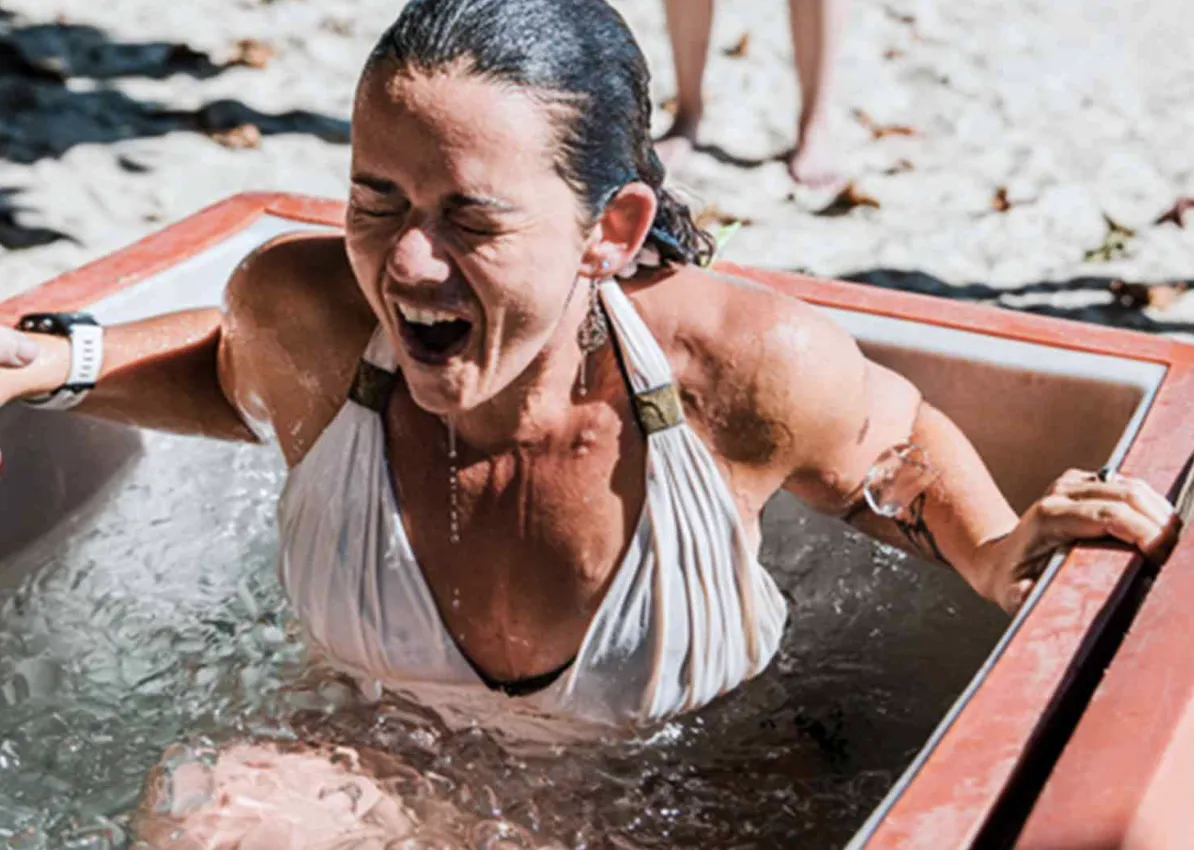
Should You Take The Plunge?
Cold plunges and ice baths are everywhere right now. From professional athletes to social media influencers, everyone seems to be climbing into barrels of ice water, swearing it’s the secret to faster recovery, better mood, mental toughness, and greater wellness.
I have colleagues in Florida who supply ice water in horse troughs for the clients at their gym to jump into post-workout.
But here’s the cold truth: hopping into an ice bath immediately after training could be undoing your hard work.
A new study added to growing evidence that cold plunges blunt the benefits of resistance training.
Study participants trained their legs, then soaked one leg in 30-degree water and the other in 80-degree water.
Researchers tracked blood flow and protein uptake in each limb over the next few hours.
The chilled leg had substantially lower blood flow and absorbed significantly less protein, which is critical for muscle repair and growth.
Translation: If your goal is to build muscle or strength, cold plunging right after a workout could be working against you, making your workouts less effective.
This pattern showed up in previous research in which men who cold-plunged after every training session gained less strength and muscle than those who didn’t.
Their muscles were nearly 20% smaller and weaker after three months, despite doing the same workouts as the non-plunging group.
A more recent review (cleverly titled “Throwing Cold Water on Muscle Growth”) summed it up: cold plunges after lifting appear to “attenuate hypertrophic changes.”
In plain English, they limit muscle growth.
Why does this happen?
Cold water causes blood vessels to constrict, reducing circulation to the muscles. That means less oxygen, fewer nutrients, and delayed delivery of the protein your body needs to repair and rebuild tissue after exercise.
It's the opposite of what you want if you're trying to stimulate growth or strength gains.
The heart attack risk
The American Heart Association advises that health benefits of cold therapy are scant. For some people, shocking the body with cold water could do more harm than good--even at less-than-frigid temperatures.
The National Center for Cold Water Safety warns that sudden immersion in water under 60 degrees can cause fatal cold shock in under a minute.
Plunging the body into cold water triggers a sudden, rapid increase in breathing, heart rate, and blood pressure known as the cold shock response, which makes the heart work harder.
When blood rushes from the extremities to the body's core to protect your organs, the arms and legs have reduced circulation, which can cause a loss of strength and coordination.
The rapid loss of heat can lead to hypothermia, making it harder to think clearly or move well. Cold water triggers hypothermia faster than being in cold air, because water takes heat away from the body 25 times faster than air.
Examination of winter swim competitors suggests that prolonged cold water immersion could lead to heart muscle damage.
Avoid cold plunges if you have a heart history or take beta blockers, which can make it harder for the body to adapt to the shock of a sudden temperature drop.
If you're healthy and not pursuing strength or muscle goals, carry on.
Otherwise, save the plunge for later, after your body’s had time to soak up the benefits of your workout.